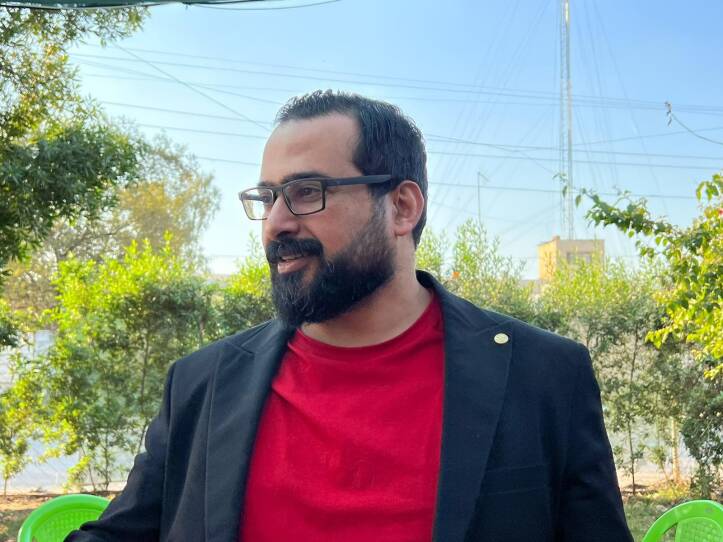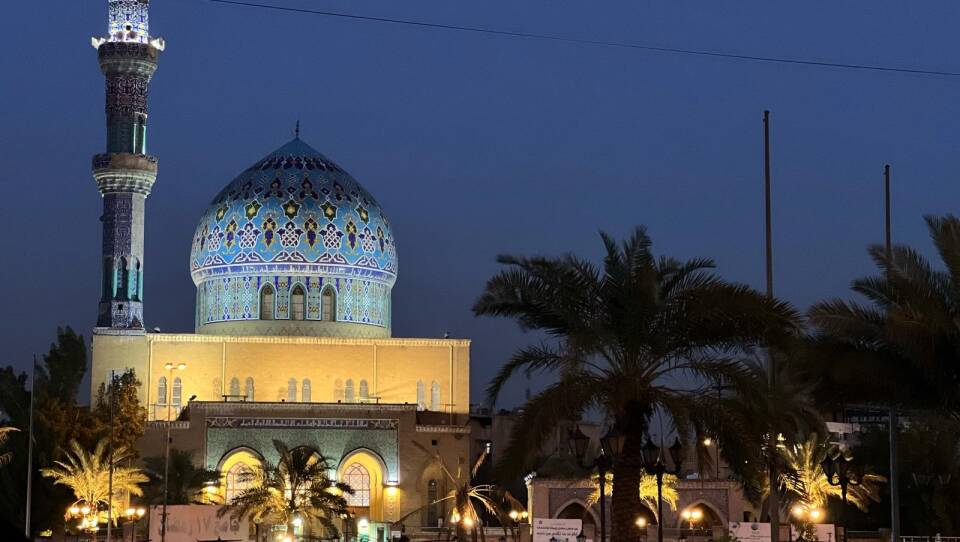Monday will mark two decades since the United States and its coalition partners invaded Iraq to topple Saddam Hussein's government in "Operation Iraqi Freedom." While the war had a profound impact in the United States, it forever altered the lives of millions of Iraqis who were touched by the violence over the ensuing years. Shirin Jaafari, a reporter for GBH and PRX program
The World,
Arun Rath: There were thousands of Americans who lost their lives in Iraq, but hundreds of thousands of Iraqis who died as a result of this war. Tell us about what the feeling is there in general, what you're hearing from Iraqis right now about this anniversary?
Shirin Jaafari: You know, there are so many stories here, it's tough to pick just one. It just seems like everyone you talk to has somehow been touched by the war and the violence that came after the U.S.-led invasion.

But let me tell you a bit about one woman that I talked to. Her name is Zahraa Malek, and she's 26 years old and she works as an interpreter.
I met her at a concert in Baghdad
She told me one other thing, Arun, and that was what her father said to her. Her father always insisted that the whole family sticks together. They all stay together. They go out together. They stay home together. He said, because if there was an attack, they all die together, so no one would be left behind to carry the pain. This really stayed with me.
Rath: It's hard to imagine alternative timelines, but when it comes to the war for Iraqis, is it generally an overall sense of regret, or is it more complicated?
Jaafari: You hear a mix of reactions from people. I talked to a lot of young Iraqis and I asked them about how they feel about the U.S. A lot of them were not born during the war or they were too young to remember the details or life under Saddam Hussein. But the Iraqis that I talked to, they say they don't have anything against the U.S. For example, one student told me he doesn't hold any grudges against American troops because they were just following orders. He thinks that it's the politicians who should be held accountable.

But
I also spoke with Muntazer al-Zaidi
So I've been hearing a mix of reactions here.
Rath: Iraq does now have a democratic government, at least on paper. It's had its ups and downs, and I guess we can debate how democratic. But tell us about how the country is picking up the pieces now, and how do people think when they're looking to the future?
Jaafari: It's funny. When I ask people how they think about the future, they often give me this deep sigh first, as if to say, "Where do I even start?" But mainly what I've heard from those that I have talked to is that they have two major concerns: one is jobs and one is security.
So Iraq is a very young country. About 40% of its population is under the age of 15. That's out of a population of about 42 million people. And these young Iraqis need jobs. Not everyone has the connections and the means to get a cushy government job, which has sort of been the norm in the past. And the private sector is not as developed as it can be because of the war, because of the corruption and mismanagement. So these young people worry about how they can make a living in this country. When you ask them how they see the future, some of them say, "I don't want to stay here. I am planning to leave." And some of them say, "Well, I don't want to leave, but how can I survive here? Just give me options. Give me alternatives."
And then when you talk about security, Iraq still faces many challenges. Even though ISIS has been defeated, there are still remnants of the group in parts of the country and there is a concern that these groups can make a comeback. Then you have the issue of the powerful militias that have been supported by Iran. They have created some sort of instability in Iraq as well. And Iraqis say they want the government to limit the power that these groups have in Iraq. As I mentioned, there's also the issue of corruption. Iraq is ranked almost at the bottom of the
Transparency International's corruption index
So, these are the concerns that people have here. When you talk to them about the future, they have doubts, they have concerns, and they really don't know what the future holds for them.






